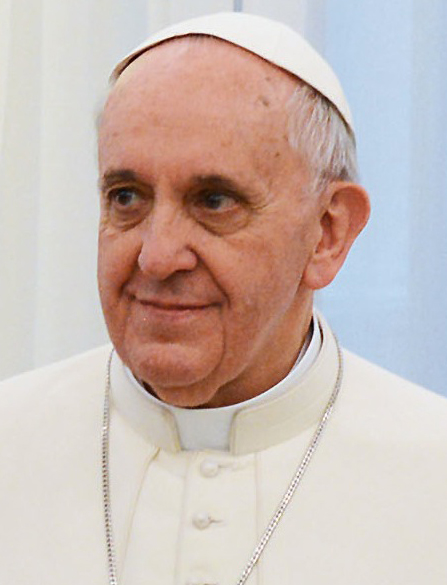
WASHINGTON (BP) — Pope Francis’ newly extended permission for all priests to forgive the sin of abortion demonstrates sharp disagreement between Roman Catholicism and evangelical Christianity over God’s forgiveness, Southern Baptist theologians say.
 In an apostolic letter issued Nov. 21, Pope Francis said he was granting “all priests, in virtue of their ministry, the faculty to absolve those who have committed the sin of procured abortion.” In so doing, the pope expanded indefinitely an authorization he had given priests worldwide during the just-concluded Jubilee of Mercy.
In an apostolic letter issued Nov. 21, Pope Francis said he was granting “all priests, in virtue of their ministry, the faculty to absolve those who have committed the sin of procured abortion.” In so doing, the pope expanded indefinitely an authorization he had given priests worldwide during the just-concluded Jubilee of Mercy.
Prior to the nearly year-long jubilee, a bishop or a specific priest approved by him typically was the only one who could forgive a woman who confesses she had obtained an abortion — as well as those who assisted in an abortion — because such a sin results in automatic excommunication from the church. Almost all bishops in the United States already had granted their priests permission to forgive abortion, Catholic News Service (CNS) reported. Forgiveness of the sin of abortion also results in the lifting of excommunication, a Vatican spokesman said, according to CNS.
In addition, Pope Francis said in his letter, “I wish to restate as firmly as I can that abortion is a grave sin, since it puts an end to an innocent life. In the same way, however, I can and must state that there is no sin that God’s mercy cannot reach and wipe away when it finds a repentant heart seeking to be reconciled with the Father.”
Southern Baptists can affirm those statements about the sinfulness of abortion and the mercy of God, but they would dissent from others, seminary professor Rex Butler noted.
“One point at which Southern Baptists disagree with the pope’s pronouncement is the necessity of a priest to absolve sins,” said Butler, professor of church history and patristics at New Orleans Baptist Theological Seminary.
“We agree with Paul,” Butler said, citing 1 Timothy 2:5-6: “For there is one God, and one mediator also between God and men, the man Christ Jesus, who gave Himself as a ransom for all, the testimony given at the proper time.”
R. Albert Mohler Jr., president of Southern Baptist Theological Seminary, said the pope’s action “raises all the issues that were at the center of the debate in the church that led to the Protestant Reformation in the 16th century.”
The teaching “that the priesthood in general, and the pope specifically, has the authority to forgive sins” is “one of the central claims” by the Roman Catholic Church, Mohler said in his Nov. 22 podcast, The Briefing.
Butler told Baptist Press in written comments, “We have no need of a priest other than Jesus Christ.”
In support, Butler quoted Hebrews 4:14-16: “Therefore, since we have a great high priest who has passed through the heavens, Jesus the Son of God, let us hold fast our confession. For we do not have a high priest who cannot sympathize with our weaknesses, but One who has been tempted in all things as we are, yet without sin. Therefore let us draw near with confidence to the throne of grace, so that we may receive mercy and find grace to help in time of need.”
“In contrast to the Roman Catholic priesthood, whereby God’s forgiveness is mediated through sacramental penance and priestly absolution, Southern Baptists instead ‘honor the principles of soul competency and the priesthood of believers, affirming together both our liberty in Christ and our accountability to each other under the Word of God,'” Butler said, quoting from the preface to the Baptist Faith & Message, Southern Baptists’ statement of faith.
The difference between Catholics and Protestants goes deeper than their views of the ministry and the church, Mohler said. “We are looking at the fundamentals of the Gospel, because we’re talking here about the forgiveness of sins,” he said.
“The evangelical imagination is simply staggered by what the pope declared over a year ago — that is a year of mercy in which he symbolically opened doors at the Vatican through which sinners were invited to enter in order to be given for that one-year period a special set of forgiveness under special conditions,” Mohler said.
“At this point, evangelicals would ask the question, ‘If indeed the papacy and the priesthood involve the ability to forgive sins, why in the world would one declare special years — in contrast to other years — in which mercy would be more available than in previous years?'”
The pope probably instituted the Jubilee of Mercy as a trial run for changing the forgiveness of abortion permanently, Boston College moral theology professor James Bretzke told The Washington Post.
The 500th anniversary of the Reformation will be celebrated next year. Martin Luther’s nailing of his “95 Theses” to the Wittenberg, Germany, church door on Oct. 31, 1517, is normally credited with igniting the Reformation.
















